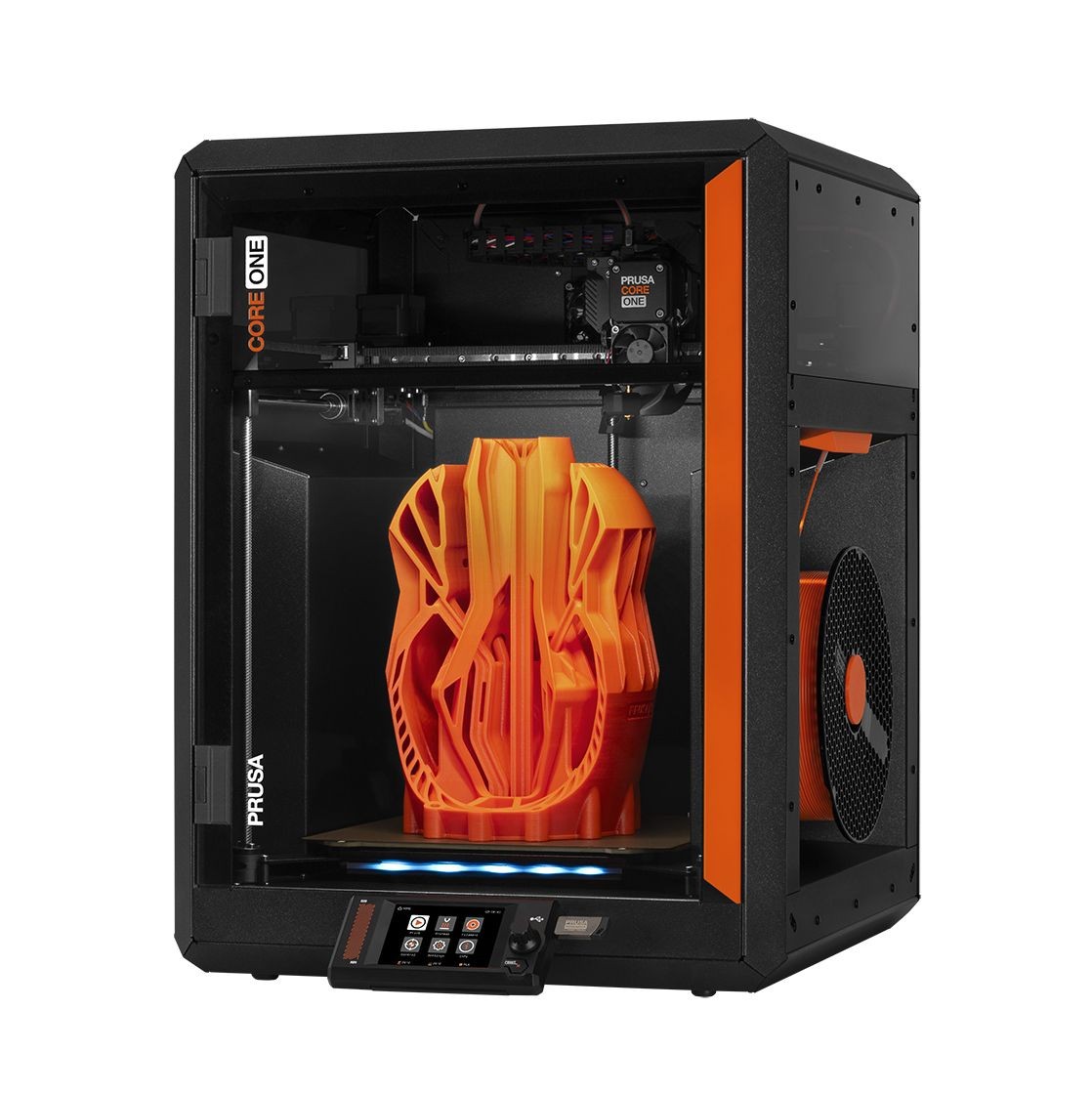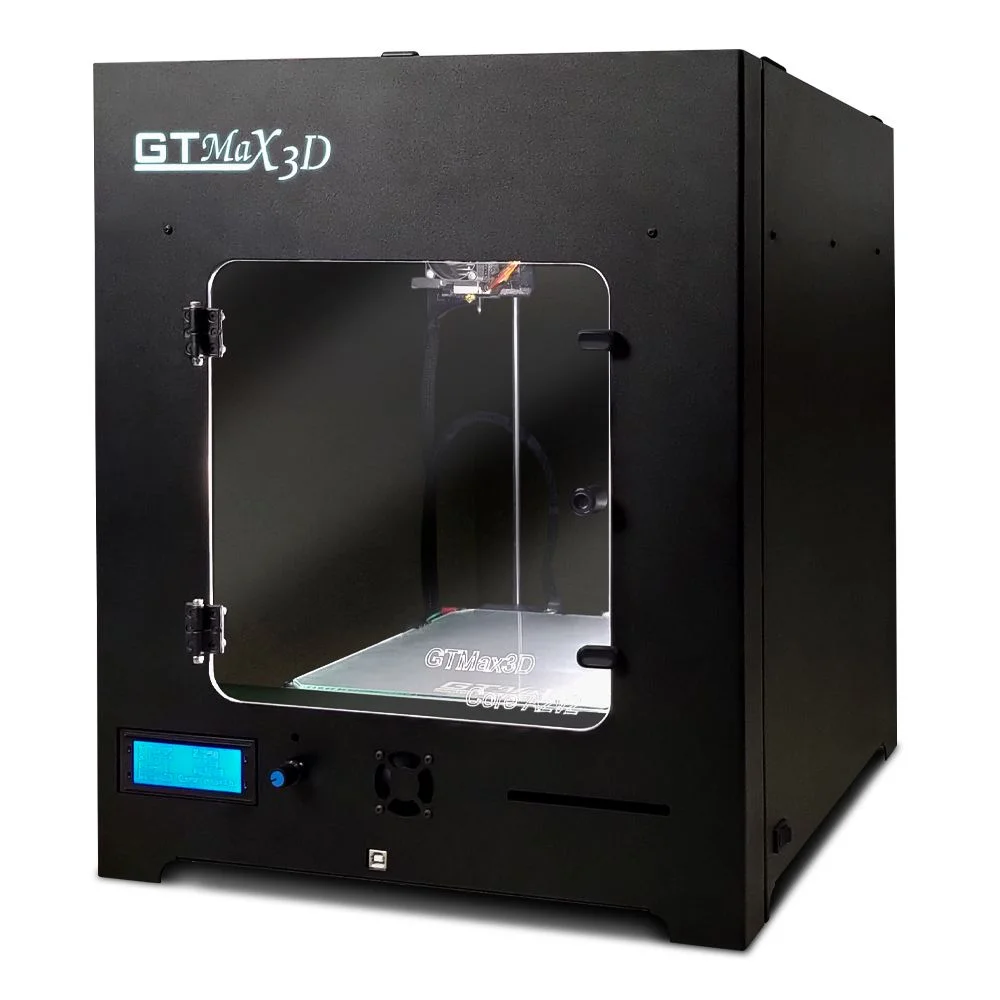Compare Core One vs Core A2V2
Comparison between the best 3D printers
Choose the best 3D printer at the best price. The cheapest 3D printers are here.
Buy a 3D printer here with 3D Fila.
 |
 |
|
| Model | Core One |
Core A2V2 |
| Printing Material | Filament | Filament |
| Buy Filament for Prusa Core One | Buy Filament forGTMax Core A2V2 | |
| Estimated price | $1200,00 | $684,00 |
| Manufacturer | Prusa | GTMax |
| Release Year | 2025 | 2019 |
| Print Volume [mm] | 250x220x270 | 220x220x240 |
| Printer Size [mm] | 385x340x620 | 425x460x512 |
| Weight [kg] | 14 | |
| Power Loss Recovery | YES | YES |
| Enclosed printer | YES | YES |
| Bed Leveling | Automatic | |
| Filament End Sensor | YES | YES |
| Bed type | Heated | Heated |
| Power supply system | Direct Drive | Bowden |
| Standard nozzle | 0,4 | 0,4 |
| Maximum Nozzle Temperature [°C] | 300 | 295 |
| Maximum Bed Temperature [°C] | 120 | 135 |
| Maximum printing speed [mm/s] | 500 | 150 |
| Filament holder | YES | YES |
| Camera for supervision | NO | NO |
| Recommended filaments | PLA, TPU, TPE, HIPS, ABS, PETG, WOOD, PC, PA, PVA, ASA | PLA, PETG, Tritan, Flex, ABS |
| Recommended slicers | Cura, Prusa Slicer, Orca | Cura, Simplify, Slic3r, IdeaMaker |
| Maximum Resolution [mm] | 0,01 | 0,05 |
| Processor | xBuddy 32 bit | |
| Display | Touchscreen 3,5'' | Mono |
| Power Supply | 240 W | |
| Connectivity | SD | SD / USB |
| Operating systems | Windows, Linux e Macbook | Windows, Mac, Linux |
| Date of registration in the system | 2024-11-27 | 2022-11-12 |
| Release date | 2025 | 2019 |
| Extra features | The Prusa Core One is a CoreXY 3D printer featuring a robust steel frame, a 3.5" touchscreen, and a heated chamber for technical filaments. It offers 360° cooling for improved print quality and supports upgrades from the MK4S model. With a compact design, a print volume of 270x250x220 mm, and compatibility with the MMU3 for multi-color printing, it stands out for its ease of maintenance, precision, and speeds up to 260% faster than the MK3S+. | The GTMax3D ProCore A2v2 is a compact and robust 3D printer with a printing area of ??220 x 220 x 240 mm. It offers high print quality, ranging from 0.05 mm to 0.32 mm. Its features include automatic filament detection and changing, travel speed of up to 300 mm/s, and a heated aluminum bed with a glass top. It has automatic bed leveling with 16 points and an all-metal hotend that reaches up to 298°C. The printer has a carbon steel frame with electrostatic painting, is automatic bivolt and has connectivity via USB and SD card. The Bowden system and core xy kinematics complete its advanced features. |
| Support for multiple colors and materials (AMS and CFS) | YES | NO |
Notes * |
||
| Cost-benefit | 7 / 10 | 6 / 10 |
| Hardware | 5.4 / 10 | 2.5 / 10 |
| Tela | . | . |
| Print volume | 3 / 10 | 3 / 10 |
| Performance | 4 / 10 | 1 / 10 |
Conclusion |
| **Conclusion:** When comparing the Core One and Core A2V2 3D printers, several key factors influence the overall value and suitability for different users. The **Core One**, manufactured by Prusa, represents a higher initial investment but justifies this with superior performance features such as a larger print volume, faster printing speeds, and advanced capabilities for printing complex models with enhanced quality. It supports a wider range of filaments, indicating its versatility for various projects, including those requiring multi-color printing with upgrades available from the MK4S model. On the other hand, the **Core A2V2** from GTMax is positioned as a more budget-friendly option, making it appealing for hobbyists or those with simpler printing needs. While it has a smaller print volume and slower speeds, it still delivers satisfactory print quality and essential features like automatic bed leveling and filament detection. However, its limitations in material compatibility and absence of advanced features such as multi-color support may hinder its appeal for more demanding projects. In summary, the Core One is better suited for advanced users looking for top-tier performance and capabilities, while the Core A2V2 serves as a solid entry-level printer for those who prioritize cost-effectiveness without requiring extensive functionality. Depending on your budget and printing needs, one model may be more favorable than the other. |

